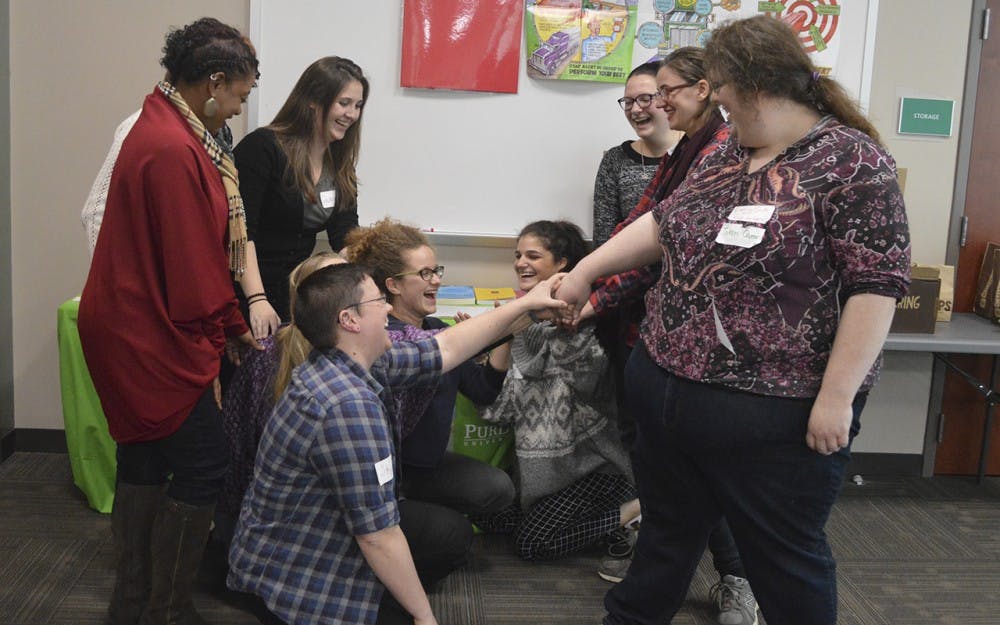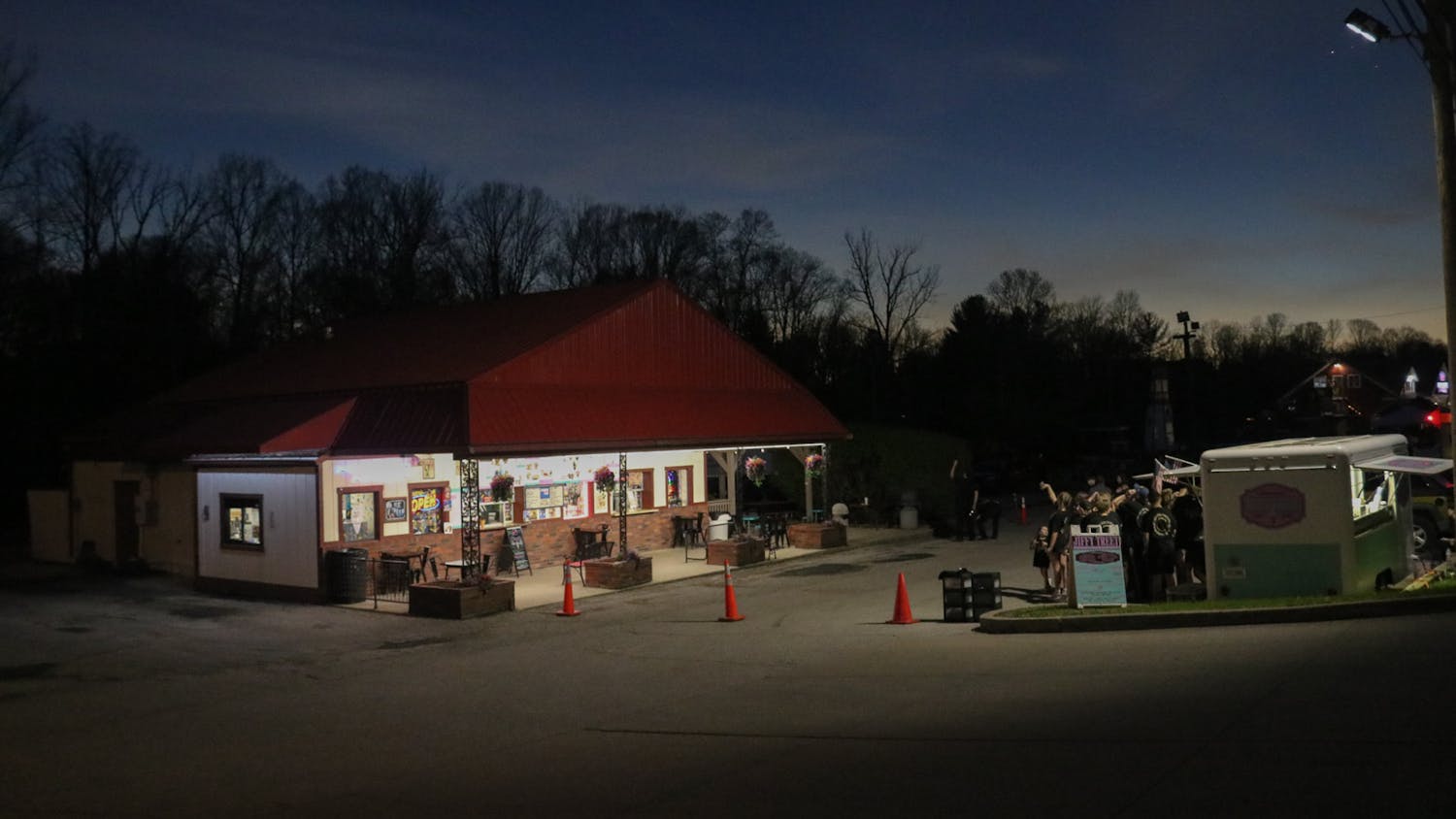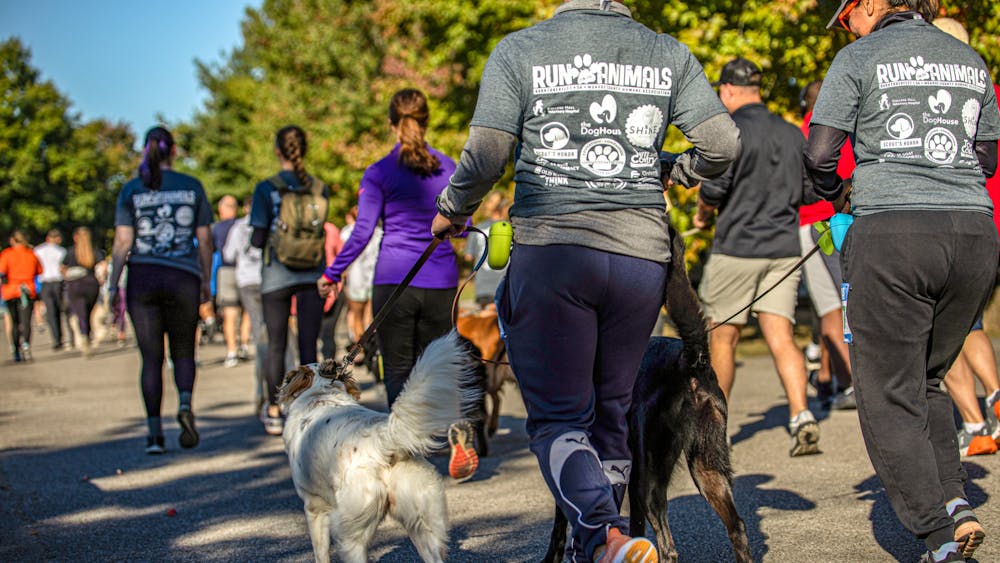Two people began wrapping one another in paper towels, transforming into what Skye Kantola referred to as a powerful image of the dichotomy between survivor and perpetrator.
The scene was a part of an allegorical skit — an exercise Kantola, program coordinator of Multicultural Efforts to End Sexual Assault, used to represent the facets of sexual assault and its relationship to underserved communities, especially the LGBTQ community.
The exercise comprised the final portion of the Sexual Violence Prevention Across Gender and Sexuality Workshop. This portion was organized by MESA and the Middle Way House on Wednesday.
The event focused on teaching sexual violence prevention in a more engaging and collaborative way.
“Unfortunately, education often happens in a way that the educator brings the knowledge and the students receives it,” Kantola said. “Education needs to be free of oppression in order to combat oppression. In order to do this, we need to have interaction rather than passively receiving information.”
Kantola said this collaborative process is representative of her strategy in educating counselors, social workers, social service and medical professionals and advocates about the experiences of members of the LGBTQ community, especially those who are survivors of sexual assault.
The six-hour workshop included other interactive elements, including monologues, dialogues and discussions about heteronormative systems that may make it more difficult for the queer community to receive the help they need both in everyday life and in dealing with sexual assault.
“No individual created this system, but we all exist in it,” Kantola said. “We need to be aware of the effect of this system and work to overcome it.”
Myke Luurtsema, prevention educator at the Middle Way House, said it is the responsibility of every individual to contribute toward overcoming this system.
Awareness of whether our language reinforces gender and sexuality norms is vital to overcoming them, Luurtsema said.
Kantola said she hopes the collaborative aspect of the workshop would benefit attendees in a unique way.
“I hope that they learned things from the content of the discussion and collaboration because then you get the ability to learn from so many people and sources at once,” Kantola said. “I also hope that they met people that can help them in any capacity in their own work.”
Sam Harrell, county services specialist from the Middle Way House, said the learning format helps form new understanding by presenting individual experiences.
“I think events like this can really help social workers and other professionals to really understand the struggles the queer community may face, especially when looking for sexual assault prevention and support programs,” Harrell said.
Harrell said they felt reliance on emotional and cultural stories made the event a more engaging experience.
Kantola said she agrees these individualized experiences have a greater impact than the more common lecture techniques often used in sexual assault prevention workshops.
“I’m always amazed at how much I learn from the participants as well, because the participants are so different in their identities and their experiences, so they all bring something different to the table,” Kantola said. “These different experiences make the workshop more impactful and engaging and more capable of creating change.”






